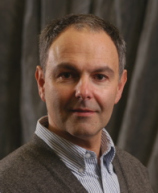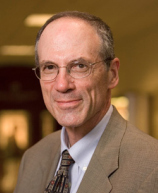Two Department of History professors received research fellowships from the National Endowment for the Humanities (NEH) this year, bringing to 42 the number of NEH fellowships awarded to Notre Dame since 1999—more than any other university in the nation during that period.
NEH fellowships support advanced research that contributes to scholarly knowledge or to the general public’s understanding of the humanities. Recipients usually produce articles, monographs on specialized subjects, books on broad topics, archaeological site reports, translations, editions, or other scholarly tools. Mark Noll, Francis A. McAnaney Professor of History, and Semion Lyandres, associate professor of history and co–director of the University’s program in Russian and East European studies, were among the University’s five NEH receipients in 2010.

Lyandres’ NEH fellowship is for The Fall of Tsarism: Untold Stories of the February 1917 Revolution. The book will include edited, annotated and introduced English translation of 16 previously unknown interviews with leading participants of the revolution. The interviews were recorded during May and June of 1917, months before the Bolsheviks came to power and at a time when the outcome of the revolution was far from obvious. They represent “the most significant first–hand accounts of the February Days known to historians of modern Russia,” Lyandres says.
“When they are published next year by Oxford University Press, scholars will be equipped to rewrite textbook accounts of the February Revolution and rethink what they know and teach about politics of 1917.” he says.
Lyandres has also received the Earhart Foundation Research Fellowship and a research grant from Notre Dame’s Kellogg Institute for International Studies for his work on the book. He is a fellow of the Kellogg Institute and the Nanovic Institute for European Studies.

Noll’s NEH fellowship is for research on the Bible in American public life, including how and why the Bible was put to use in forming American civilization, what problems emerged over the course of time (for example, different groups of Christians using different translations), and the development of today’s many regional and denominational differences.
“The task I’m working on this year is making something coherent out of a massively sprawling subject,” he says. “I’m deeply grateful to both the NEH and Notre Dame for their support as I pursue the challenge.”“Over the years I have worked on various aspects of this very big subject,” Noll says, “such as debates over whether slavery could be justified in Scripture or efforts by public figures (Abraham Lincoln, Martin Luther King, Jr.) to use biblical language in important speeches, or effects on church communities when academic biblical scholarship became important.
Earlier this year, Noll won the Missions/Global Affairs book award from the publishers of Christianity Today for his latest book, The New Shape of World Christianity: How American Experience Reflects Global Faith.
Several other faculty members in the Department of History have received NEH grants in the last several years, including John Van Engen, Andrew V. Tackes Professor of History; Professor Thomas Kselman; James Turner, Rev. John J. Cavanaugh, C.S.C., Professor of Humanities; Margaret Meserve, Carl E. Koch Associate Professor of History; and Olivia Remie Constable, history professor and director of the Medieval Institute.